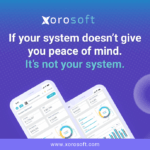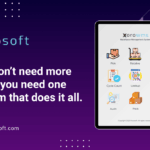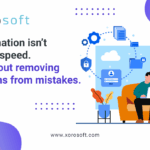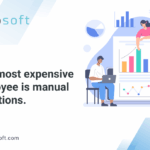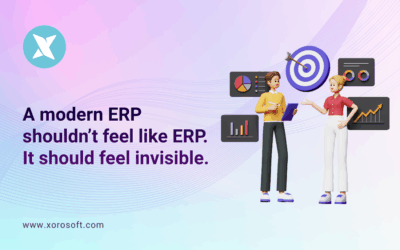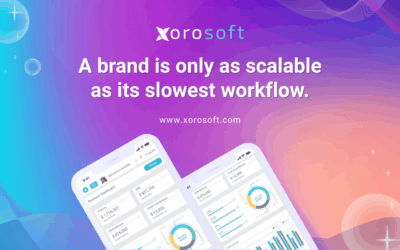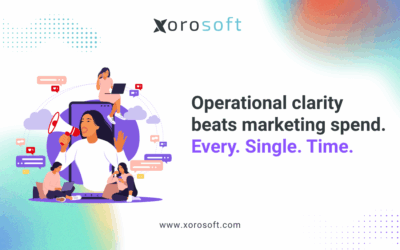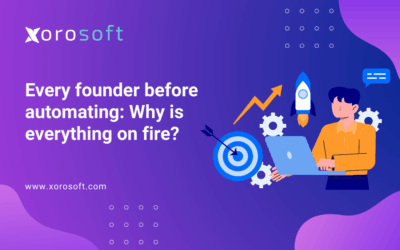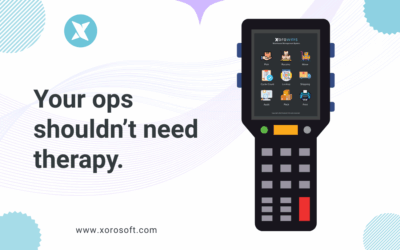
Understanding ERP Systems
As businesses grow and expand, the need for efficient and integrated systems becomes increasingly crucial. Enterprise Resource Planning (ERP) systems have emerged as a comprehensive solution to streamline various business processes, including payroll management. An ERP system integrates different functions across the organization into a single platform, providing real-time visibility, data-driven insights, and automation. This section explores the fundamental aspects of ERP systems, their role in modern businesses, and the impact of XoroERP on payroll management.
ERP systems are designed to centralize and standardize core business operations, such as finance, human resources, supply chain, and customer relationship management. By consolidating these functions into a unified platform, businesses can achieve greater operational efficiency, improved decision-making, and enhanced collaboration across departments. The seamless integration of data and processes within an ERP system eliminates the need for disparate systems and manual data entry, reducing the risk of errors and enhancing overall productivity.
In the context of payroll management, an ERP system offers a holistic approach by integrating payroll processing with other relevant functions, such as time and attendance tracking, employee benefits administration, and compliance management. This integration enables businesses to automate payroll calculations, tax deductions, and regulatory reporting, ensuring accuracy and compliance while minimizing administrative burdens. Furthermore, ERP systems provide comprehensive reporting and analytics capabilities, empowering organizations to gain valuable insights into their payroll expenses, trends, and cost-saving opportunities.
The Benefits of Using an ERP Solution
The adoption of an ERP solution, such as XoroERP, brings a multitude of benefits to businesses seeking to optimize their payroll management processes. One of the primary advantages of using an ERP solution is the standardization of payroll practices and policies across the organization. With XoroERP, businesses can establish consistent payroll workflows, tax withholding procedures, and pay period schedules, leading to greater transparency and uniformity in payroll operations.
Moreover, XoroERP facilitates seamless integration with other functional areas, such as human resources and accounting, enabling cross-departmental data sharing and process alignment. This integration ensures that payroll data is accurately synchronized with employee records, financial transactions, and statutory compliance requirements, eliminating data discrepancies and enhancing overall data integrity. Additionally, the centralized nature of XoroERP empowers businesses to access real-time payroll information, track historical data, and generate comprehensive reports with ease.
Another key benefit of using XoroERP as an ERP solution for payroll management is the automation of routine tasks and calculations. By leveraging advanced algorithms and predefined rules, XoroERP automates payroll processing, tax calculations, and deduction adjustments, reducing manual errors and processing time. This automation not only enhances the accuracy of payroll activities but also frees up valuable time for HR and finance professionals to focus on strategic initiatives and employee engagement.
Streamlining Payroll Management with XoroERP
XoroERP offers a robust set of features specifically tailored to streamline and optimize payroll management within businesses. The system’s intuitive interface and user-friendly design make it easy for HR and payroll administrators to navigate through various payroll functions, from employee data management to payroll processing and reporting. With XoroERP, businesses can efficiently manage employee information, including personal details, pay rates, benefits, and tax withholdings, ensuring that payroll data is always up-to-date and accurate.
Moreover, XoroERP’s payroll processing module is equipped with advanced capabilities to handle complex payroll calculations, including overtime, bonuses, commissions, and statutory deductions. The system’s built-in tax engine automatically computes federal, state, and local taxes based on the latest regulatory requirements, ensuring compliance and minimizing the risk of tax-related errors. Additionally, XoroERP provides configurable payroll schedules and workflows, allowing businesses to define specific processing timelines and approval hierarchies to suit their operational needs.
Furthermore, XoroERP enables seamless integration with time and attendance systems, facilitating accurate capture of employee work hours, leave balances, and attendance records. This integration ensures that payroll calculations are based on precise attendance data, eliminating discrepancies and unauthorized time entries. By centralizing time and payroll data, XoroERP enhances accuracy and efficiency while reducing the administrative overhead associated with manual data reconciliation and validation.
Improving Inventory Management with Xorosoft ERP
In addition to its impact on payroll management, Xorosoft ERP extends its benefits to improving inventory management within businesses. Inventory management plays a critical role in ensuring smooth operations and customer satisfaction, and Xorosoft ERP offers a comprehensive set of tools and functionalities to optimize inventory control, procurement, and warehousing processes.
With Xorosoft ERP, businesses can gain real-time visibility into their inventory levels, stock movements, and supply chain activities. The system’s inventory management module provides detailed insights into product quantities, locations, and reorder points, allowing businesses to proactively manage their inventory levels and avoid stockouts or overstock situations. Furthermore, Xorosoft ERP offers advanced inventory tracking capabilities, including serial number tracking, batch tracking, and expiration date management, empowering businesses to maintain accurate stock records and ensure product traceability.
Moreover, Xorosoft ERP’s procurement and purchasing module enables businesses to streamline their procurement processes, from vendor selection and purchase requisition to order processing and invoice management. The system facilitates seamless communication with suppliers, automated purchase order generation, and receipt reconciliation, optimizing the entire procurement cycle and reducing lead times. By integrating inventory management with procurement, Xorosoft ERP helps businesses achieve greater control over their supply chain activities and minimize inventory holding costs.
Enhancing Accounting Processes Using Xorosoft
In the realm of accounting, Xorosoft ERP serves as a powerful tool for enhancing financial management and reporting capabilities. The system’s accounting module is designed to centralize financial data, automate accounting workflows, and provide comprehensive insights into the organization’s financial performance. By leveraging Xorosoft ERP for accounting processes, businesses can streamline their financial operations, ensure compliance with accounting standards, and drive informed decision-making.
Xorosoft ERP offers a range of accounting functionalities, including general ledger management, accounts payable and receivable, financial reporting, and budgeting. The system’s general ledger module serves as the core repository for financial transactions, enabling businesses to record, track, and analyze all financial activities in a centralized manner. Additionally, Xorosoft ERP’s accounts payable and receivable modules automate invoice processing, payment reconciliation, and credit management, optimizing cash flow and vendor relationships.
Furthermore, Xorosoft ERP’s financial reporting capabilities empower businesses to generate custom reports, financial statements, and performance dashboards, providing stakeholders with real-time insights into key financial metrics and KPIs. The system supports multi-currency transactions, intercompany consolidation, and compliance reporting, catering to the diverse accounting needs of global businesses. By leveraging Xorosoft ERP for accounting processes, businesses can achieve greater accuracy, transparency, and efficiency in their financial management, paving the way for sustainable growth and profitability.
Key Features of XoroERP
XoroERP, as a comprehensive ERP solution, encompasses a rich array of features and functionalities that cater to the diverse needs of modern businesses. The system’s key features are designed to address critical aspects of payroll management, accounting, inventory control, and operational efficiency, empowering businesses to optimize their processes and drive sustainable growth. This section explores the key features of XoroERP and their significance in enhancing business operations.
Unified Platform for Integration
XoroERP provides a unified platform that integrates payroll management, accounting, inventory control, and other essential business functions into a single cohesive system. This integration ensures seamless data flow, process alignment, and real-time visibility across different departments, eliminating data silos and promoting cross-functional collaboration. By consolidating disparate systems and processes, XoroERP enables businesses to achieve operational efficiency, data consistency, and process standardization.
Advanced Reporting and Analytics
One of the standout features of XoroERP is its advanced reporting and analytics capabilities, empowering businesses to gain valuable insights into their payroll expenses, accounting transactions, inventory performance, and overall business operations. The system offers customizable reporting templates, ad-hoc report generation tools, and interactive dashboards, allowing users to analyze key metrics, identify trends, and make data-driven decisions. XoroERP’s robust analytics tools enable businesses to track performance indicators, monitor compliance metrics, and forecast future trends, facilitating proactive decision-making and strategic planning.
Scalability and Customization
XoroERP is designed to be scalable and adaptable to the evolving needs of businesses, regardless of their size or industry. The system’s modular architecture and customizable features enable businesses to tailor the ERP solution to their specific requirements, adding new functionalities, integrating third-party applications, and accommodating organizational growth. Whether businesses are expanding their operations, entering new markets, or diversifying their product offerings, XoroERP provides the flexibility and scalability to support their evolving needs and drive sustainable growth.
Implementing XoroERP in Your Business
The implementation of XoroERP in a business environment involves a structured process that encompasses planning, configuration, data migration, testing, and training. Successful implementation of XoroERP requires careful consideration of business requirements, stakeholder engagement, and alignment with organizational goals. This section provides insights into the key considerations and best practices for implementing XoroERP in your business, focusing on the critical aspects of deployment, customization, and change management.
Needs Assessment and Planning
The first step in implementing XoroERP is to conduct a comprehensive needs assessment to identify the specific requirements, pain points, and objectives of the business. This involves engaging key stakeholders from different departments, understanding their workflows and challenges, and defining the desired outcomes of the ERP implementation. Based on the needs assessment, businesses can develop a detailed implementation plan that outlines the scope, timeline, resource allocation, and success criteria for the XoroERP deployment.
Configuration and Customization
Once the implementation plan is established, businesses can proceed with the configuration and customization of XoroERP to align with their unique business processes and requirements. This involves defining security roles, configuring workflows, setting up master data, and customizing reports to ensure that XoroERP meets the specific needs of the organization. The system’s flexibility and modular architecture enable businesses to tailor the ERP solution to their operational nuances, ensuring a seamless fit with existing workflows and business practices.
Data Migration and Testing
Data migration is a critical aspect of ERP implementation, as businesses need to ensure the accurate transfer of historical data, employee records, financial transactions, and inventory information into XoroERP. A comprehensive data migration strategy involves data cleansing, mapping, extraction, transformation, and validation to mitigate the risk of data inconsistency and integrity issues. Following data migration, thorough testing of the XoroERP system is essential to validate its functionality, performance, and integration with existing systems, ensuring a smooth transition and minimal disruption to business operations.
XoroERP Training and Support
Effective training and ongoing support are essential components of a successful XoroERP implementation, empowering users to leverage the full potential of the system and adapt to the new processes and workflows. Xorosoft provides comprehensive training programs, user guides, and support resources to ensure that businesses and their employees are equipped with the knowledge and skills to effectively utilize XoroERP for payroll management, accounting, and inventory control. This section delves into the training and support offerings provided by Xorosoft, highlighting their significance in driving user adoption and maximizing the benefits of XoroERP.
User Training Programs
Xorosoft offers structured user training programs designed to familiarize employees with the functionalities, features, and best practices of XoroERP. These programs encompass hands-on training sessions, interactive tutorials, and scenario-based learning exercises to provide users with practical insights into using XoroERP for payroll management, accounting tasks, and inventory control. The training programs are tailored to different user roles and proficiency levels, ensuring that employees across the organization gain the necessary skills to navigate XoroERP effectively and perform their day-to-day tasks with confidence.
Online Resources and Knowledge Base
In addition to formal training programs, Xorosoft provides a comprehensive online knowledge base, documentation, and video tutorials that serve as valuable self-learning resources for users. The knowledge base covers a wide range of topics, including system navigation, feature guides, troubleshooting tips, and best practices for maximizing the efficiency of XoroERP. By offering readily accessible online resources, Xorosoft empowers users to seek answers to their queries, explore advanced functionalities, and stay updated on the latest enhancements and features of XoroERP, fostering a culture of continuous learning and skill development.
Dedicated Support Services
Xorosoft’s support services play a pivotal role in ensuring that businesses receive timely assistance, resolution of issues, and proactive guidance in utilizing XoroERP effectively. The support team comprises experienced professionals who are proficient in addressing technical queries, functional challenges, and system-related concerns encountered by users. Businesses can access dedicated support channels, including ticketing systems, live chat support, and phone support, to seek assistance with system configuration, troubleshooting, and performance optimization. Xorosoft’s commitment to providing responsive and reliable support services contributes to the overall success and user satisfaction with XoroERP.
The Future of ERP Systems: Innovations and Upgrades
The landscape of ERP systems, including XoroERP, is continuously evolving, driven by technological advancements, industry trends, and the changing needs of businesses. As businesses embrace digital transformation and seek to harness the power of data-driven insights, the future of ERP systems holds promising innovations and upgrades that are poised to redefine how organizations manage their payroll, accounting, and operational processes. This section explores the emerging trends and potential advancements in ERP systems, shedding light on the transformative impact they may have on businesses in the future.
Cloud-Based ERP Solutions
The shift towards cloud-based ERP solutions represents a significant trend that is reshaping the ERP landscape. Cloud-based ERP systems, such as XoroERP Cloud, offer businesses the flexibility, scalability, and accessibility to manage their operations from anywhere, at any time. With cloud-based deployment, businesses can benefit from reduced infrastructure costs, automatic software updates, and enhanced mobility, empowering employees to access and utilize XoroERP seamlessly, whether they are in the office, at home, or on the go. The scalability of cloud-based ERP solutions also enables businesses to adapt to changing business dynamics, expand their operations, and leverage advanced functionalities without the constraints of on-premises systems.
Artificial Intelligence and Machine Learning
The integration of artificial intelligence (AI) and machine learning (ML) capabilities into ERP systems holds the potential to revolutionize how businesses analyze data, automate repetitive tasks, and derive predictive insights. In the context of payroll management, AI and ML algorithms can be leveraged to identify patterns, anomalies, and trends in payroll data, enabling businesses to forecast labor costs, optimize workforce planning, and mitigate compliance risks
Conclusion
In conclusion, the impact of XoroERP on payroll management and overall business operations is significant. By leveraging the capabilities of XoroERP, businesses can streamline their processes, enhance visibility, and make data-driven decisions, ultimately maximizing efficiency and driving sustainable growth. From streamlining payroll management to improving inventory control and enhancing accounting processes, XoroERP offers a comprehensive solution for businesses looking to optimize their operations and achieve greater agility in a competitive business landscape.
As businesses navigate the complexities of modern operations, the need for a robust and integrated ERP system like XoroERP becomes increasingly vital. With its advanced features, comprehensive support, and future-ready capabilities, XoroERP empowers businesses to adapt, innovate, and thrive in an ever-evolving business environment. To experience the transformative impact of XoroERP on your business, I encourage you to book a demo with Xorosoft and discover the possibilities of maximizing efficiency and driving growth with a powerful ERP solution.
